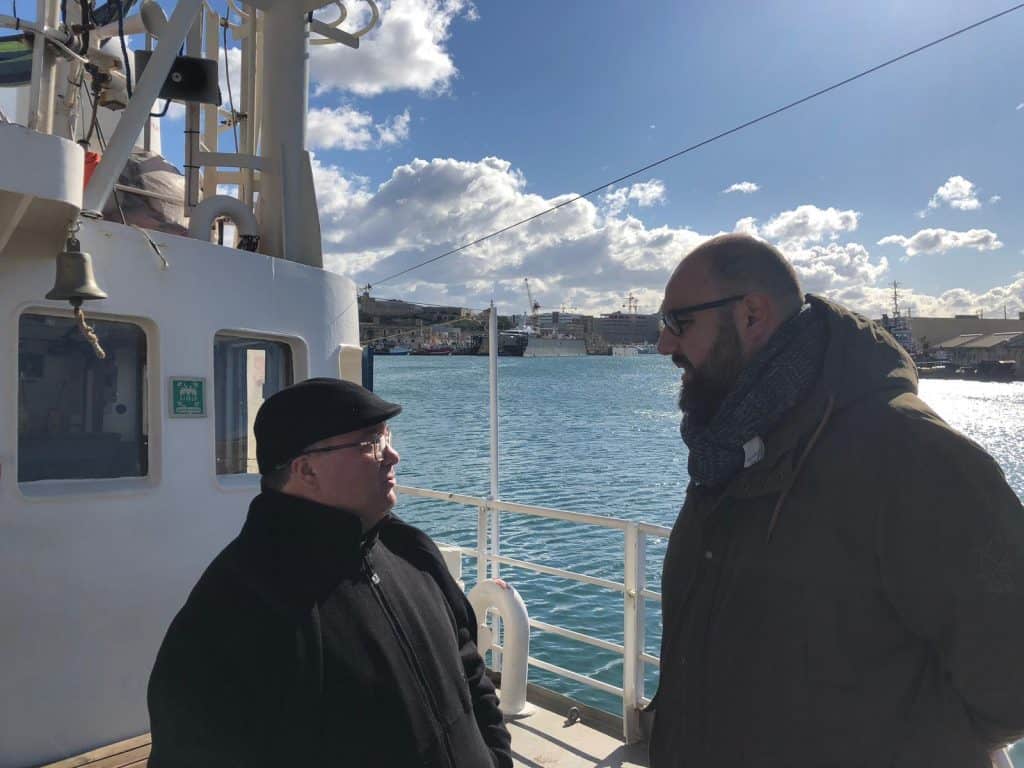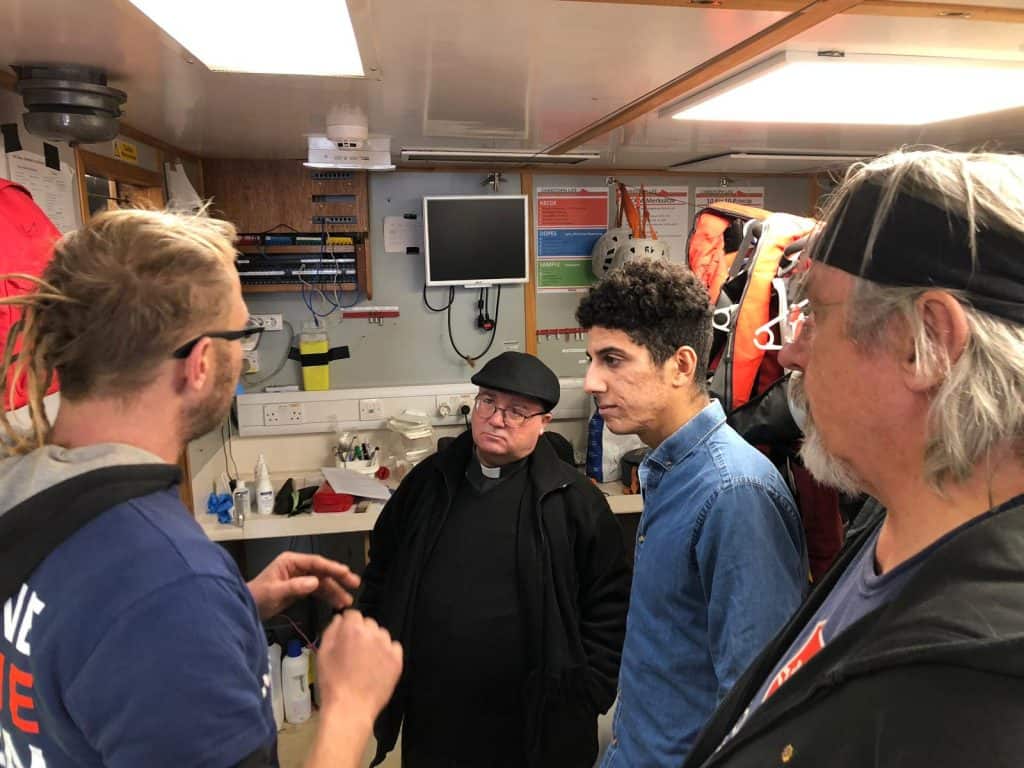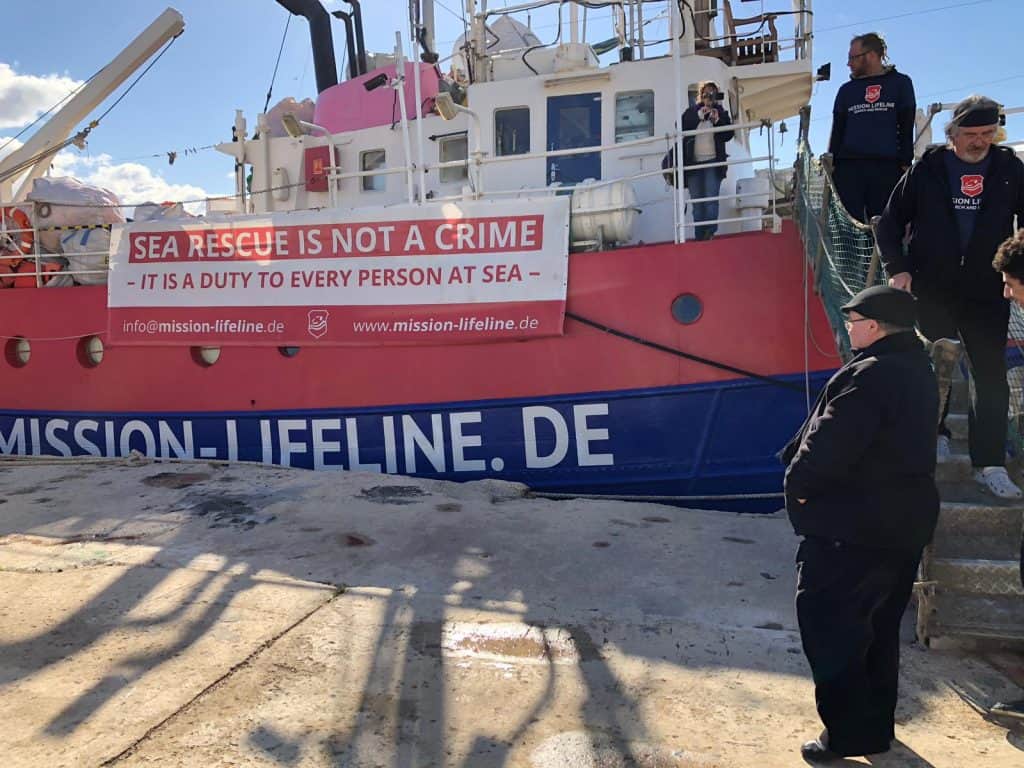I reported for The Sunday Times this morning a visit Archbishop Charles Scicluna paid to the crew of Mission Lifeline, one of the civilian rescue boats trapped in the Maltese harbour while its captain faces criminal action for saving lives at sea.
The visit itself is an act of defiance as it happens in spite of court-ordered restrictions on boarding the vessel. But Charles Scicluna was not there to protest yesterday. He was there to support volunteers who have given up chunks of their life to help save people they do not know from slavery, wrongful imprisonment, torture or death at sea.
After his visit the Archbishop answered some questions I had for him.

What was the purpose of your visit to Lifeline today?
It has been very informative and also important for me because it gives a wide perspective on the issue. It convinces me that there are problems and issues that need a concerted effort by Europe and I think this is the test of civilisation.
Getting this onboard in a humane, wise and prudent but also effective way is going to be the true test of civilisation and I think that we have to take the challenge.
There are 49 people out at sea. They have been there for 15 days.
Yes, I think this is one of the challenges we’re facing because we cannot ignore the predicament of the people out there.
But we also understand that countries like Malta have been lumped with a problem that is bigger than them and I think that if Europe has to survive morally it has to rise up to the occasion and it has to put into action the principles that are basic to Europe: solidarity, respect for fundamental human rights and the dignity of human beings.
As long as there are people out there because there is no solution from Europe, Europe is failing.
You heard today about the fate that meets people that are saved and are taken back to Libya or the risks that they face when they’re taken to Tunisia. How should this inform the decisions that Europe takes?
I think Europe has to first of all put up a true system of solidarity between nations, that is burden sharing.
But also engage with the countries on the southern shores of the Mediterranean because if we’re going to put money we also need to have structures of accountability. And it’s not only about spending money but also about how we and other people treat people. And so the question of human dignity is not negotiable and the solution is not injecting money and then it’s the other people’s problem.
I think we need to insist that people, wherever they are, in whatever situation they find themselves, are treated with dignity.
You were told today that missions like this are partly funded even by colleagues of yours like the Archbishop of Munich. How about colleagues of yours in Hungary and Poland, countries that are saying ‘absolutely no, we won’t receive these people’? What can your colleagues do to change that?
This is very obvious when we meet on the level of bishops. Because we bring the concerns of our different countries, our cultural baggage. But I think when we go to the core of the Gospel, Jesus became man. He did not become a Catholic or a European. He became man.
I think that the more fundamental aspect of our faith, being a lived faith that gives hope to people, and that is true charity in action, is that we see the face of Jesus in every human being. And we’re going to be judged on the way we treat each other, whoever we are.
This is civil society working: it’s people’s charity, it’s volunteers and churches. That’s who’s doing this. Are our political leaders failing us at this time?
Our political leaders have issues that are bigger than us and bigger than themselves and we have to appreciate that they are part of a system that needs to work properly and that everybody, especially people in politics, have the duty to make it work according to the principles of solidarity.
So I think it is the moment to support our politicians to do the right thing. We have a right to expect that they do the right thing. They need our support and I think that the more we support them to do the right thing the more they are empowered to do it.

